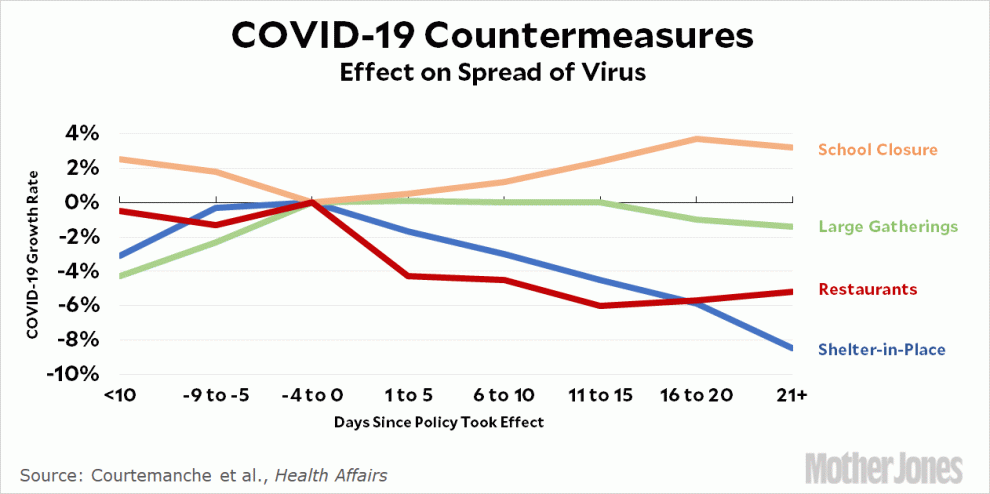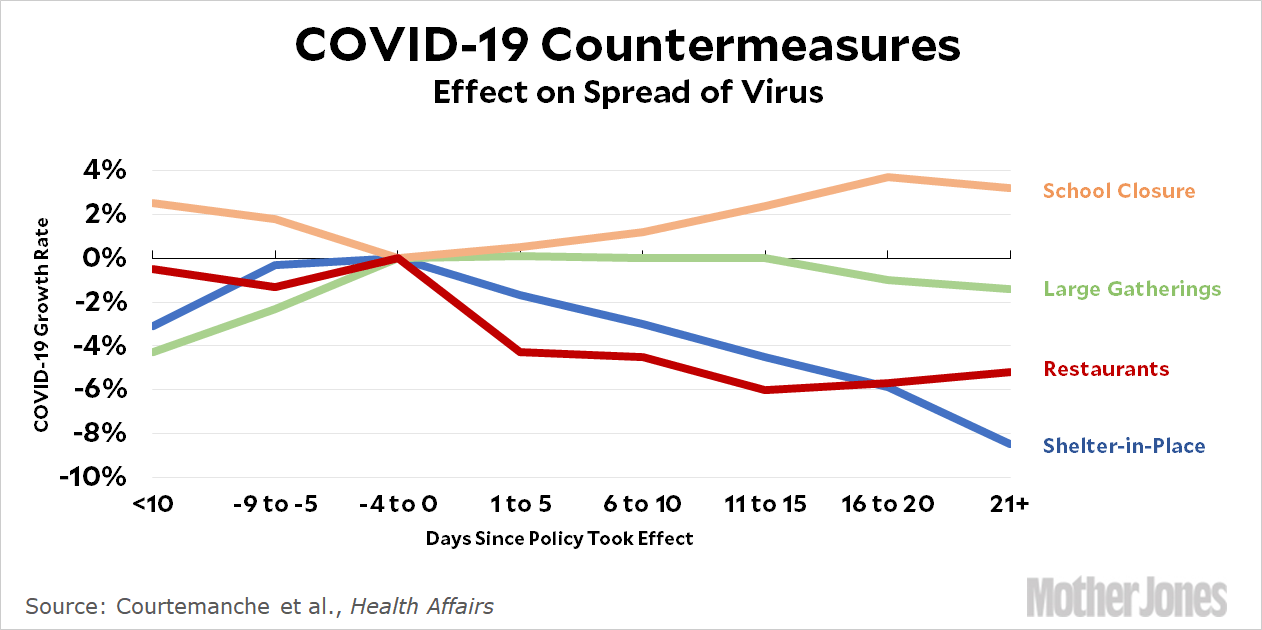
Senator Rand Paul has some advice for how we should be fighting COVID-19 as we move forward:
“Below 25 years old the fatality rate of COVID-19 is 0.00008%, or roughly one in 1.25 million . . .” Open our schools now!https://t.co/Md3zGjDmVV
— Senator Rand Paul (@RandPaul) May 22, 2020
Is Rand Paul an idiot? Or does he have a point? It’s a hard question to answer. Schoolkids may not usually show many symptoms of COVID-19, but they can get infected and they can transmit their infections to others. On the other hand, closing schools and forcing parents to stay home can also cause an indirect increase in COVID-19 deaths. The question is, how does this net out?
The ideal way to find out would be a natural experiment. Find two counties that are similar but that closed their schools at different times and see how this affected things. Unfortunately, school closures are done on a statewide basis, and virtually every state closed their schools within about a week of each other around March 18. So that’s out. This leaves us with the dreaded models. But since that’s all we have, let’s do a quick scan of what our modelers think. First off, here’s the conclusion of a study of Wuhan and Shanghai in Science:
While proactive school closures cannot interrupt transmission on their own, they can reduce peak incidence by 40-60% and delay the epidemic.
I’m not super thrilled about modeling studies that use Wuhan as their data source, but the authors did find that the incidence of new infections went down during school vacation periods. Next up is a note published in JAMA:
Although no official data are available, to our knowledge, on the effectiveness of school closure during the COVID-19 epidemic, the poor relevance of this restrictive measure seems confirmed by the evidence that in Taiwan, the spread of COVID-19 was minimized without widespread planned school closures….The poor effect of school closure during coronavirus epidemics has already been evidenced in some studies carried out during the SARS epidemic. In China, it was found that school closure for 2 months was not significantly effective for disease prevention mainly because of the very low incidence of symptomatic disease among school-aged children.
Here’s another published in the Lancet:
Our model estimates that if the infection mortality rate of COVID-19 increases from 2.00% to 2.35% when the health-care workforce declines by 15.0%, school closures could lead to a greater number of deaths than they prevent.
And a study published in Health Affairs suggests that school closures are not only ineffective, but might be associated with more COVID-19 deaths:

Finally, here’s a “rapid systematic review” of studies that have investigated the effect of school closure:
Recent modelling studies of COVID-19 predict that school closures alone would prevent only 2-4% of deaths, much less than other social distancing interventions. Policy makers need to be aware of the equivocal evidence when considering school closures for COVID-19, and that combinations of social distancing measures should be considered
None of this is conclusive proof. But at the moment, there is no conclusive proof. That said, the best evidence we have seems to suggest that school closures have a fairly minimal effect taken on their own, and a zero or maybe even negative effect when you net out the increase in COVID-19 deaths that they cause indirectly.
When you take this into account and then add two things . . .
- Schools know a lot more about effective social distancing practices than they did in March.
- By September the infection rate of COVID-19 should be lower than it is today.
. . . the case for reopening gets even stronger. Obviously things might change between now and September, and new studies might provide better insight into the real-world effect of school closures on a disease like COVID-19. For the moment, though, I’d say the evidence suggests that school closures have (a) little effect and (b) are probably nowhere near worth the tremendous impact they have on both parents and kids.















